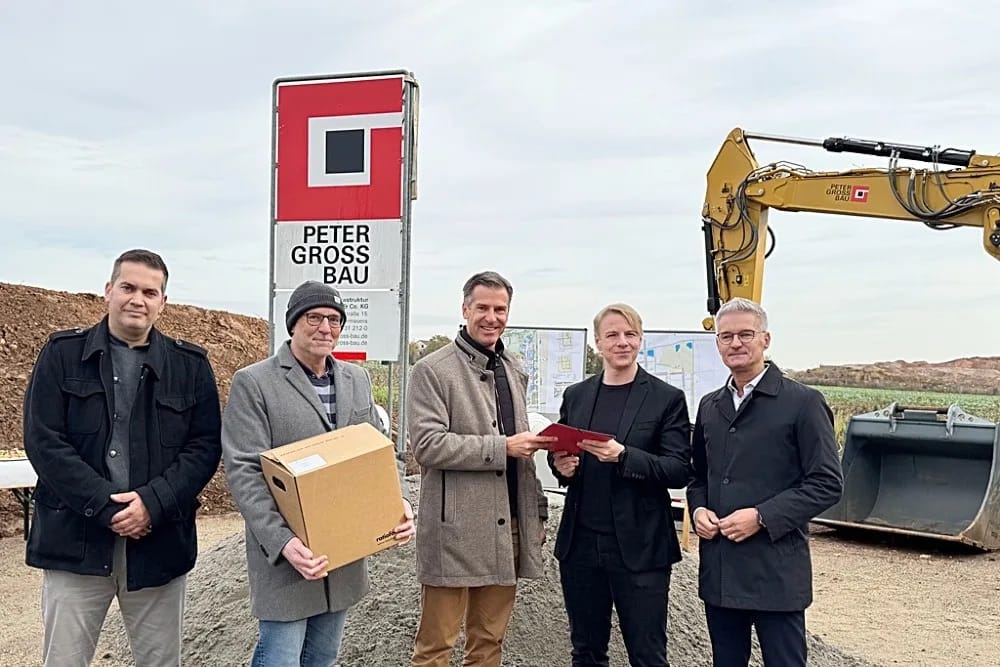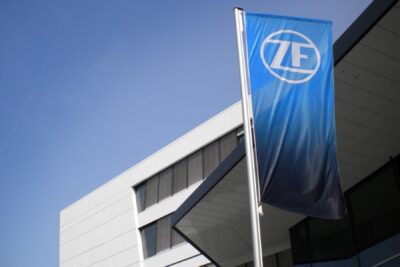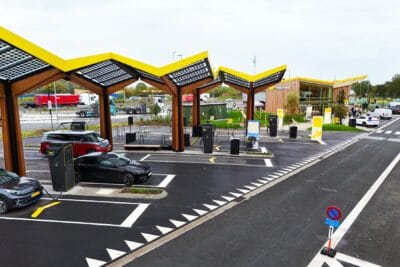Vulcan Energy: Construction permit granted for lithium extraction plant in Germany
The German-Australian company Vulcan Energy has been granted permission by the city of Landau to build its commercial Lithium Extraction Plant (LEP) in the D12 industrial zone. The approval complements the previously issued construction permits for the ORC geothermal power plant and the 110/20 kV substation on site. According to Vulcan, it now holds all necessary permits to construct the combined geothermal and lithium extraction plant (G-LEP) in Landau.
Vulcan aims to extract lithium from geothermal brine to establish a local source of sustainable lithium in Europe. The company’s combined geothermal and lithium resource is the largest in Europe, with its licence areas focused on the Upper Rhine Valley in Germany. In February 2023, Vulcan published the results of a feasibility study for the first phase of its lithium project, which outlined plans to produce 24,000 tonnes of lithium hydroxide monohydrate (LHM) per year. This will be created through a multi-stage process based on lithium chloride, with extraction taking place in Landau and processing in Frankfurt-Höchst. The company has now reaffirmed this 24,000-tonne target following receipt of the construction permit in Landau, noting that the volume will be “enough for ca. 500,000 electric vehicles” per year.
Landau and Höchst have long been key sites for Vulcan Energy, as the company already operates 1:50-scale pilot facilities at both locations to refine its processes for future commercial plants. In April 2024, the first lithium chloride was filtered from geothermal brine at the so-called LEOP (“Lithium Extraction Optimisation Plant”) in Landau. This precursor material was processed for the first time in November 2024 at the Central Lithium Electrolysis Optimisation Plant (CLEOP) in the Höchst industrial park into battery-grade lithium hydroxide.
The newly approved LEP is therefore Vulcan’s full-scale commercial extraction facility. Construction is due to begin later this year, though it depends on the completion of the still-pending financing package. The lithium specialist has not yet specified when operations will begin but emphasises that the facility “will use intermediate heat exchangers at each of its well sites to efficiently transfer heat from geothermal brine into a closed-loop industrial water cycle.” The heat from the brine will first be transferred via heat exchangers into a closed industrial water circuit, which will be used both for regional district heating and for electricity generation via the ORC systems.
“After the heat is utilised, the cooled water is recirculated back to the heat exchanger for reheating. Simultaneously, the cooled lithium-rich brine is directed from the heat exchanger to the LEP for the lithium extraction […] The lithium-depleted brine is then reinjected into the reservoir, completing the cycle,” Vulcan explains.
The extracted lithium chloride will subsequently be delivered to the recently approved processing facility (CLP) in the Höchst industrial park, where it will be converted into battery-grade lithium hydroxide monohydrate (LHM). According to Vulcan, the entire process “is uniquely carbon neutral over its life cycle and burns zero fossil fuels in the process of producing the lithium.”
Vulcan Energy recently estimated the total investment for the two large-scale facilities in Landau and Höchst at €690 million. To support financing for both projects, the federal government and the states of Rhineland-Palatinate and Hesse are contributing €103.6 million. This funding is provided under the EU’s “Temporary Crisis and Transition Framework” (TCTF) through the German programme for “Resilience and Sustainability of the Battery Cell Manufacturing Ecosystem.” Moreover, the Landau facility was selected by the EU in March 2025 as one of 47 strategic projects under the Critical Raw Materials Act.
Vulcan Energy must secure the remaining project financing by the end of the year, with future customers playing a major role. Just recently, the company announced its fourth customer, Glencore. Under an eight-year agreement with a Glencore subsidiary, Vulcan will supply between 36,000 and 44,000 tonnes of LHM.
To “finalise financing,” Vulcan also amended its existing offtake agreements – specifically those with its three earlier customers: Umicore, LG Energy Solution, and Stellantis.
Following the revisions, LG Energy Solution will receive 31,000 tonnes of LHM over six years. Umicore will receive 23,000 tonnes over the same period. Stellantis is contractually secured to receive 128,000 tonnes of LHM over ten years. The original agreements had envisaged deliveries beginning in 2025. With construction now only expected to start soon, it is clear that deliveries will not commence as early as initially planned.
This article was first published by Cora Werwitzke for electrive’s German edition.





0 Comments